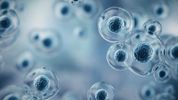A Japanese research team from Nagoya University has made a groundbreaking advancement in artificial photosynthesis, offering the potential for both green energy and medical breakthroughs. Their innovative technique, called artificial photosynthesis directed toward organic synthesis (APOS), uses water and organic waste to generate energy and valuable pharmaceutical materials.
Unlike traditional methods, this process does not produce harmful waste but instead creates only useful chemicals and energy. The team demonstrated the production of green hydrogen and organic compounds, which could be applied in medical fields, including the development of drugs for conditions like depression and hay fever.
This revolutionary approach mirrors the natural process of photosynthesis, where plants convert sunlight, water, and carbon dioxide into oxygen and glucose, but with a focus on sustainable and waste-free outcomes.
By eliminating carbon dioxide and waste, this method promises a cleaner, more efficient way to produce essential materials without environmental harm. With potential applications in both energy and medicine, this breakthrough could play a significant role in the future of renewable energy and healthcare!
Scientists make major energy breakthrough with 'state-of-the-art' photosynthesis technique: 'Only energy and useful chemicals were created'
https://news.yahoo.com/news/tech/articles/scientists-major-energy-breakthrough-state-104500234.html
 unknownx500
unknownx500



/Passle/60211dc9e5416a0c14bc63d4/SearchServiceImages/2025-12-29-18-01-51-388-6952c20fad04586c3adc4c32.jpg)












